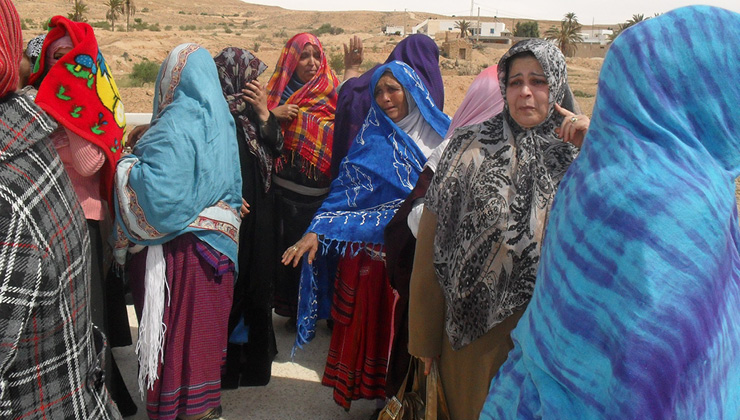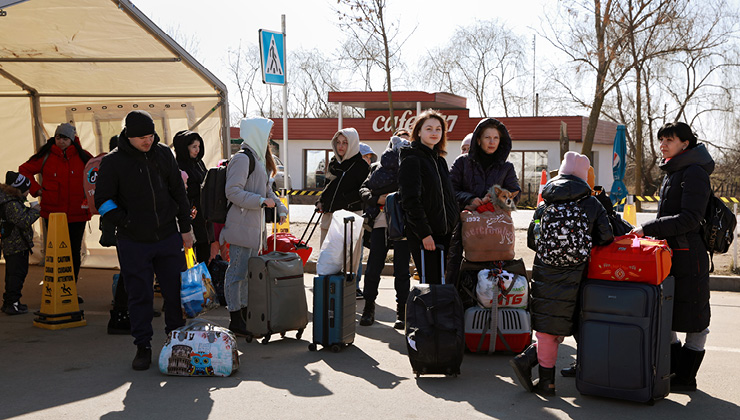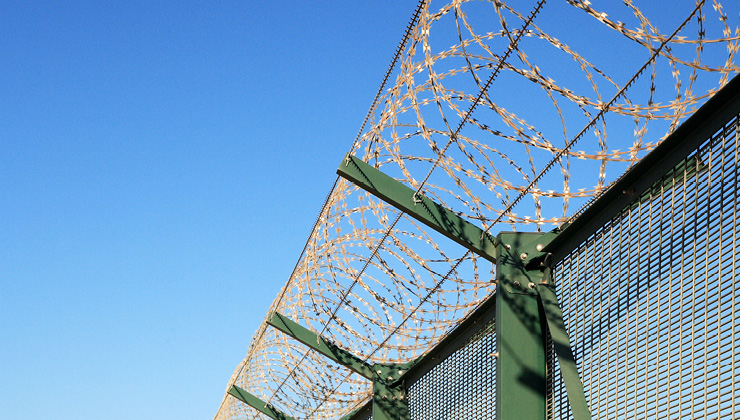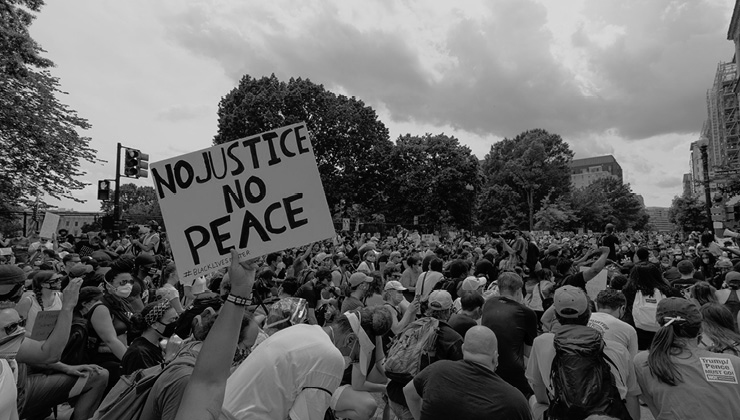Our Generation for Inclusive Peace (OGIP) – is a youth-led organisation aiming to make peace and security processes more inclusive, intersectional, and decolonised through advancing young voices and experiences. OGIP challenges the dominant frameworks for relief and recovery by exploring different contexts, perspectives, identities and experiences on relief and recovery and by demonstrating collaborative and transformative solutions based on their recent research series on feminist recovery.
Relief and recovery, conceptualised under the Women Peace and Security (WPS) Agenda, is generally associated with humanitarian response, post-conflict reconstruction, and the provision of support for the victims of conflict. If, however, conceptualisations of relief and recovery are extended, and power holders working on relief and recovery processes transform their approaches, the pillar of relief and recovery holds the potential to work towards a just and sustainable peace.
In the current global context, societies are seeking to recover from the impacts of the COVID-19 pandemic, mitigate the disastrous effects of the climate emergency and recover from conflict and instability. Communities directly affected by crises are working collectively to find and deliver solutions. To be both effective and transformative, relief and recovery processes must respond to crises beyond traditional understandings of conflict, and centre affected communities in their responses.
Recovery strategies that are inclusive, intersectional, feminist, and anti-racist hold great potential for a just and sustainable peace that facilitates people-centred security, challenges structural inequality and radically transforms structures of power. It is imperative to transform institutional actors’ approaches to relief and recovery to achieve a version of security that focuses on the lives and wellbeing of people and communities. Processes of recovering and rebuilding from crises, such as the current pandemic, come with significant financial investment and attention from international actors; inherently, they also provide a window of opportunity to dramatically rethink and reshape the status quo and therefore, do things differently.
Recovery strategies that are inclusive, intersectional, feminist, and anti-racist hold great potential for a just and sustainable peace that facilitates people-centred security, challenges structural inequality and radically transforms structures of power.
Below, we argue that a feminist approach that works to redress can help unlock the potential of recovery and rebuilding. To facilitate this process, we explore three actions required to redress inequalities in relief and recovery processes; challenge conceptualisations of legitimate knowledge, move away from homogeneous approaches and centre a feminist approach to care and how it impacts participation in relief and recovery.
Legitimacy, knowledge, and power in decision-making
Western concepts of knowledge have been homogenised as ‘truth’ subverting the global balance. Knowledge types of those in the Global South, who form the global majority, are devalued, de-prioritised and in some cases co-opted by the Global North. Practitioners in the Global North have been deemed as “knowers of ideas” whereas those in the Global South are positioned as the ‘beneficiaries of programmes’ or are often erased from the narrative completely, for instance the continued erasure of Indigenous communities’ knowledge and practices. For a feminist relief and recovery process, it is imperative to shift the power dynamic and to instil transformational change, addressing histories of inequality and exploitation. It is important to fund and support research and solutions that are created in the Global South led by communities and individuals who are the real experts on their needs and solutions.
Further, it is integral to utilise methods to get to these solutions that are participatory, inclusive and accessible.
Practitioners and institutions should seriously consider ways in which they can close the ‘feedback loop’ offering ways to shift from extractive research and top-down implementation to more meaningful engagement and collaboration with local partners and contributors.
Often the most marginalised groups are affected by multiple global issues. Thus, paying close attention to gender, sexual orientation, age, disability, race, neurodiversity, class, and caste enables an understanding of how different factors and characteristics impact individuals and communities differently. Relief and recovery processes must engage those disproportionately affected by crises as co-creators and owners of knowledge and solutions from the very start of response processes.
Challenging homogeneity and championing context-specific responses
Often relief and recovery processes are imported from one context, or generalised approaches defined by institutional actors in the Global North, directly into other crises, meaning actions often do not respond to the specific needs of communities or identify how marginalised groups may experience crises differently. When contextual information is sought, institutional bias, a lack of adequate funding, and a hesitancy to work with local partners can often lead to a homogenisation of communities and lived experiences and result in policy interventions and programming actions that are too narrow and therefore insufficient.
Feminist approaches to relief and recovery require a curiosity to go beyond one-size-fits-all solutions and take context into account. Decision making in crises contexts, therefore, needs to take a long-term and holistic view, take seriously the diverse experiences of actors and communities in that context, and challenge the problematic binary between the so-called “local” and “global”. Feminists’ insistence to look at power structures – who holds power, why, and to what effect – is vital, therefore, for achieving lasting meaningful impact and ensuring context-specific responses are developed by affected communities. This approach also requires a shift in material terms, ensuring that financial and material power is redirected to local actors, familiar with the contexts the communities recovery and rebuilding is taking place in.
Feminists’ insistence to look at power structures – who holds power, why, and to what effect – is vital, therefore, for achieving lasting meaningful impact and ensuring context-specific responses are developed by affected communities.
Care
Underpinning relief and recovery is labour; paid and unpaid, within systems of care to holistically provide for people’s wellbeing. The COVID-19 pandemic has brought care to centre stage more than ever before. Caring for friends and family, caring for the community and caring for ourselves. Whilst the burden of care materialised through unpaid labour continues to be disproportionately placed and felt by self-identifying women, it is more so for women with marginalised identities.
Our society has created a culture that places the onus of responsibility for ‘self-care’ and wellbeing on the individual by promoting materialistic solutions. Whilst also placing expectations of unrealistic productivity on individuals, further entrenching neoliberal capitalist structures. This culture is designed to lack space and time for rest, recovery and healing. In doing so, the additional burdens on marginalised communities create barriers for those most affected by crises to participate in relief and recovery processes in a way that protects their wellbeing.
Understanding the complexities of care, the role it plays in creating burdens and inequality, and the structural factors that lead to this must be centred for relief and recovery processes not to exploit those already burdened with care and to place individual and collective care as central in creating a feminist and just peace. The WPS community needs to redress the burden of care placed on self-identifying women and more broadly marginalised and racialised communities, as well as recognise and redistribute this by prompting long-needed discussions around racism, oppression, inequity, privilege and inclusion in the peace, security and humanitarian sectors. Further, calling these sectors to reflect inward and recognise their colonial roots.
Our society has created a culture that places the onus of responsibility for ‘self-care’ and wellbeing on the individual by promoting materialistic solutions. Whilst also placing expectations of unrealistic productivity on individuals, further entrenching neoliberal capitalist structures. This culture is designed to lack space and time for rest, recovery and healing.
The organisations and institutions currently leading relief and recovery processes bear the responsibility to create structural and organisational change that redistributes the burden of care. Acknowledging the role of care and responding to the disproportionate burdens it holds is central to undertaking relief and recovery that addresses the structural factors leading to these burdens and ensuring care and wellbeing are centred in recovery processes.
The Future of relief and recovery
Recovery and rebuilding is a complex and layered process that requires a commitment to centring inclusivity, intersectionality, feminist approaches and anti-racist commitments. The actors that currently hold power in these processes namely UN Agencies, National Governments and INGOs should reflect on the structure and systems of power they engage in and reproduce through recovery and rebuilding. The OGIP policy paper on feminist recovery and rebuilding provides these actors with concrete recommendations on how to redress these inequalities through challenging conceptualisations of legitimate knowledge, moving away from homogeneous approaches and centring a feminist approach to care. In addressing these issues, there is the potential for recovery and rebuilding to provide an opportunity to move towards a just and sustainable peace.
This blog is based on the Policy Brief “An inclusive and sustainable approach to relief and recovery” which provides tangible recommendations to power holders, including multilateral organisations, governments and INGOs, with the goal of generating radically transformative and truly inclusive policy interventions to ensure that relief and recovery is meaningful, just and sustainable.
Contributors: The OGIP research series and policy paper on Feminist Recovery and Rebuilding was developed collaboratively by OGIP’s Research Group. Research Group Members were involved in the concept development and editorial process. With thanks and acknowledgement to Research Group Members Nikita Yasmin Shah, Alamgir, The Institute for Young Women’s Development, Alexandria Kazmerik, Rita Trias Prats, Kendall Trelegan, Hannah Edwards, Ambika Varma, Quamar Jafri, Lorna Wightman, Sarah Dickens, Genevieve Riccoboni and Alia Soliman for their contributions.
Our Generation for Inclusive Peace (OGIP): OGIP is a feminist organisation that aims to advance, shape, and influence the Women, Peace, & Security (WPS) and Youth, Peace, & Security (YPS) agendas to be more inclusive, intersectional, and decolonised through advancing young voices and experiences.
The views, thoughts and opinions expressed in this blog post are those of the author(s) only, and do not necessarily reflect LSE’s or those of the LSE Centre for Women, Peace and Security.
Image credit: UN women (CC BY-NC 2.0)





